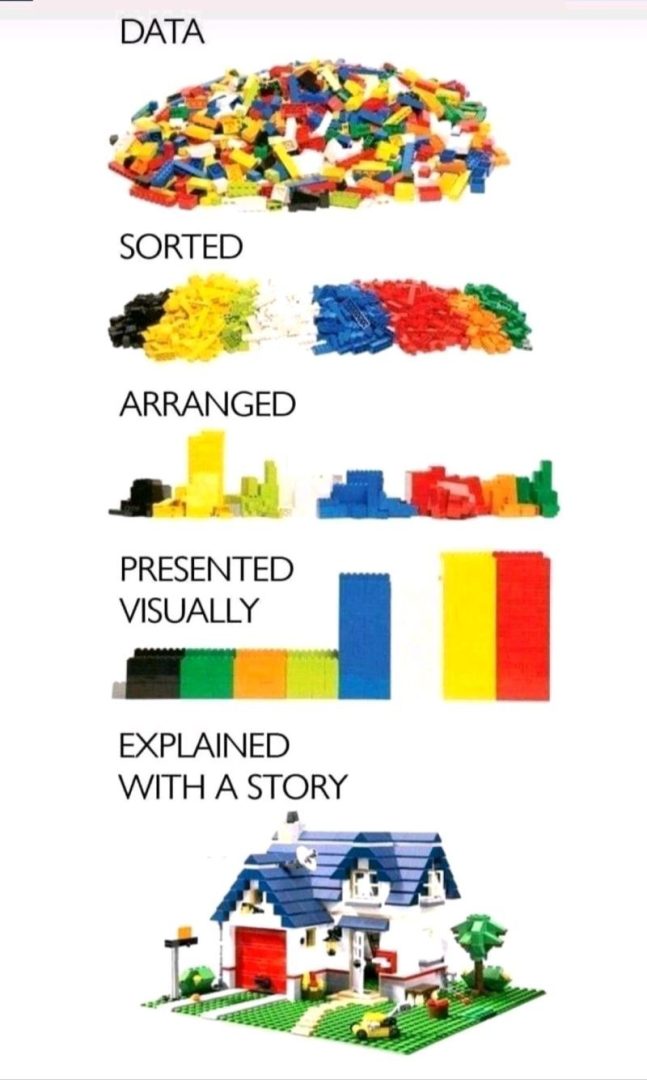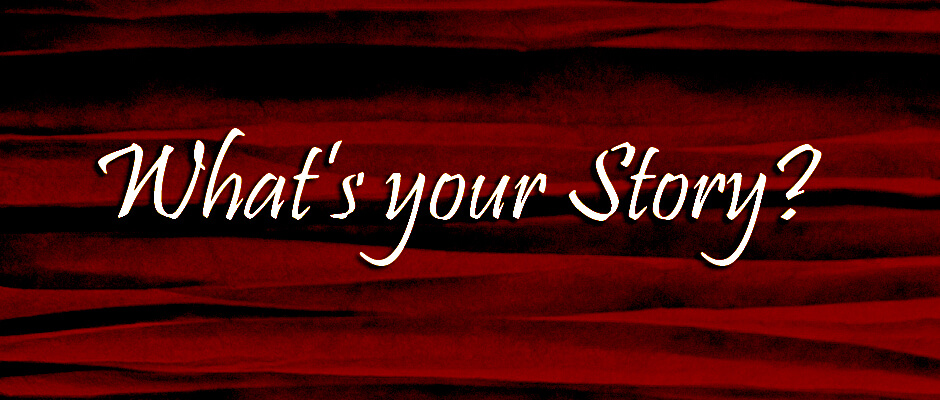Myth is the basis for everything we humans do that goes beyond mere survival. We need myths, as they confirm our identity and our place in the world. In this article I’d like to show how stories determine our everyday lives and how we can make the most out of this fact. For that, let’s start at the beginning…
Inhalt
- 1 The First Myth: Origin of the Mind
- 2 Reality Construction: Every story is a falsification of reality
- 3 Mythology & Philosophy: struggle for the sovereignty of interpretation
- 4 Fringe currents: conspiracy myths, counter-speculation theories and more
- 5 Protection from propaganda: Framing & De-framing
- 6 Conclusion: Our personal responsibility in this world
The First Myth: Origin of the Mind
According to estimates, a total of 108 billion human beings have lived on our planet so far [Source: Spektrum]. Much has changed since our beginnings, but one thing has always remained the same: We humans love stories, because they help us to understand and navigate the world.
At some point in our evolution, our minds developed, giving us the ability to think in abstract terms and solve complex problems. It’s still our most important tool, if we manage to use it consciously. Humanity often processed the development of the mind in its stories — on a meta level, so to speak. For example, according to the biblical story in Genesis, Adam and Eve ate from the tree of knowledge, found themselves naked, and were cast out of paradise as a result.

In allegorical terms, the thinking mind has great advantages and disadvantages for us. The great advantage was that it enabled mankind to spread across the globe. People simply were able to communicate in much larger groups than before. The downside was that the mind is very self-referential and we’re addicted to passive thinking, which causes great suffering for many people.
Reality Construction: Every story is a falsification of reality
“Don’t believe everything you think!”
– Heinz Erhardt
It’s not without reason that we speak of myth when we mean something that is not entirely true. In principle, everything we communicate is a falsification, because when we process something, anything, into a story, we always deviate from reality.

Again, this has its pros and cons. Let’s take an example from the historian Harari, that of the car brand “BMW”: In reality, there are only cars. Or there’s a hall in which these cars are assembled. But BMW itself is an abstract idea that doesn’t really exist. There’s just a certain kind of unspoken contract between us human beings, that we want to believe in such things. Precisely for this reason, it doesn’t matter, for example, whether there is a God or not, only whether believe in him. As we all know, faith alone can move mountains…
Mythology & Philosophy: struggle for the sovereignty of interpretation
“There are no new fundamentals. You’ve got to be a little suspicious of someone who says, “I’ve got a new fundamental.” That’s like someone inviting you to tour a factory where they are manufacturing antiques”
– Jim Rohn
Mythology is the common code of a culture, i.e. the collection of all its narratives. A specific story form is the so-called narrative, which usually means a recurring political story pattern.

Narratives always emerge from fictions and vice versa. When we talk about narratives, however, we first have to look at the political mainstream. In this mainstream we find ideas, concepts and stories that are circulating back and forth all the time.
“Those who tell the stories rule society.”
– Platon
The mainstream is simultaneously meaningful and dangerous. It’s meaningful, because it works like the glue of our society and helps us orient ourselves together. On the other hand, if certain narratives come into focus as a result of trending topics, which are primarily emotionally triggered, highly moralizing in nature and not at all differentiated, then these narratives are able to divide society. In such cases, we can witness a political power play. Some individual or group wants to convince the majority of their ideas about what values are important and what needs our urgent attention.
The biggest dispute over the sovereignty of interpretation still seems to be between the broad masses, the elites and the populists. Elitist thinking goes back to ancient Greek philosopher Plato, who thus founded academics. Broadly speaking, elitists believe that the masses must be led by an elite and, of course, that they themselves belong to that elite. The populists, on the other hand, believe that they are already leading the masses by telling them what they want to hear.
Narratives in Film and Documentary Film
“All great political action consists in speaking out what is.”
– Ferdinand Lassalle
Mainstream Film essentially belongs to pop culture. In pop culture, it’s a problem when politically motivated themes find their way into works of fiction and are imposed from the outside, because not only the quality gets worse, but the lack of cohesion also undermines their own message. The audience slowly but surely understands which ideas are shown and which are not. With every film, the decision-makers reveal what they’re really trying to do, instead of actually proving their point.
This political dimension is even more difficult in Documentary Film. Whenever filmmakers yell the motto “Show what is”, loosely based on a quote by Ferdinand Lassalle, they reveal that they believe depicting reality is a value in itself. For me this is a problematic understanding of arts and media. In my opinion, it shouldn’t be about depicting anything from an elitist point of view, but about showing something meaningful.
Fringe currents: conspiracy myths, counter-speculation theories and more
“It’s not conspiracy theory, it’s conspiracy practice”
– Neues aus der Anstalt (German comedy show)
Conspiracy theories are stories that attempt to explain a particular state of affairs by a purposeful conspiracy. Basically, there have always been conspiracies throughout history and sometimes there’s some truth to certain speculations. However, conspiracy myths are a big problem, when causal connections are established where none exist or even can’t exist. It’s very often the case that many people start behaving similarly without consulting one another. No causality can be derived from this fact.

For example, if the majority of the media reports in a certain way, that doesn’t mean that there’s a conscious system behind it, with players connected to each other. A certain mindset might exist that slowly or suddenly emerged. Ironically, this is often the very mechanism by which pieces of a fringe conspiracy theory find their way into the mainstream. Counter-speculations indeed are important for our society in order to challenge the mainstream and gain new insights.
Protection from propaganda: Framing & De-framing
Framing refers to the deliberate choice of specific words or images to frame the perception and interpretation of any given story right at the beginning. Framing serves to reinforce a certain message or direct opinion about it in a desired direction.
In order to protect yourself against manipulative framing techniques, it’s crucial to develop an awareness of them and critically question how stories are presented to you. Always look beyond the surface and analyze the underlying motives and interests. The following questions can help:
- Who is telling me something here?
- What are they telling me, what aren’t they telling me?
- Why is this person telling me this?
- Why are they telling me this now?
- What does this person get from me believing in their story?
- Could there be other perspectives on this matter?
De-framing, on the other hand, refers to the process of debunking existing framings and recurring narratives, and adopting alternative perspectives to gain a broader perspective. In order to effectively counter propaganda, it’s important to examine various sources, verify information and identify the intentions behind the stories presented.
At the same time, it helps to deal with your own psyche in the same way and to check your own inner propaganda. The self-talk you have all day every day reveals the false beliefs you have acquired over decades. However, resolving them is much more difficult…
Conclusion: Our personal responsibility in this world
In a highly connected world, in which information spreads ever more quickly, we have to arm ourselves more and more against manipulation. The battle for interpretative sovereignty will continue to intensify as different groups will use all methods to spread their own stories and shape public opinion.
Only through media-critical education we’ll be able to put a stop to it. In my view, what we desperately need from each individual is more detachment and constant, reasonable doubt about the narratives we deal with on a daily basis, both from within and from without. What helps me the most is deceleration, regular reflection and generally a more conscious engagement with (social) media.
Thanks for staying with me until this point. If you want to find out more about these topics, I have added a small list of books for you.
Further reading:
- A UNIVERSE FROM NOTHING by Lawrence Kraus
- SAPIENS by Yuval Noah Harari
- THE POWER OF NOW by Eckart Tolle
- MYTH AND MEANING by Claude Levi-Strauss
- PSYCHOLOGY OF MASSES by Gustave Le Bon
- MAINSTREAM by Frederic Martel
- THE ART OF BEING RIGHT by Arthur Schopenhauer
If you want to read more, here are some film-related topics:
- Toxic Realism
- The Mainstream
- Arthouse Aesthetics
- Movie Diversity
- German Movies
- Movies without Screenplay
- Movies without Story
- Female Movie Characters

A few words about me: As a Writer-Director, I write my own stories. I wrote the eBook The Ultimate Reading Guide for students as a learning aid. I also give Writing Seminars and Film Workshops.
